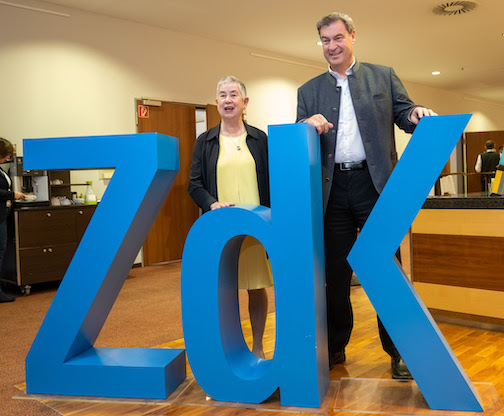Britta Schultejans and Matthias Balk, dpa I Saturday, May 6, 2023
MUNICH – The Central Committee of German Catholics (ZdK) believes that the process of coming to terms with the abuse scandal in the Church is far from complete.
At the spring plenary meeting in Munich on Saturday, ZdK Vice-President Wolfgang Klose demanded, among other things, the establishment of structures to deal with cases in Catholic associations and organizations.
In addition, it must be clarified how the ZdK can cooperate with the German Bishops’ Conference (DBK) on the issue. Klose demanded that the committee accompany the reappraisal in the DBK and the Catholic dioceses in a critical manner.
The ZdK General Assembly is the highest body of the organization of Catholic laity. It meets twice a year – and now in Munich for the first time after the conclusion of the so-called Synodal Way, the reform process in the Catholic Church in Germany that has been extremely controversial in the view of conservatives.
Victims of sexual abuse in the Catholic Church set off by bicycle from Munich to visit Pope Francis in Rome on Saturday.
“The Catholic Church has still not come to terms with the scandal,” said Dietmar Achleitner, who was abused by a Catholic priest between the ages of 10 and 17. “We want to send a message to the pope.”
The spokesman for the affected people’s advisory board of the archdiocese of Munich and Freising, Richard Kick, emphasized: “We want to encourage those affected to stand up, to come forward, to talk about it.”
After a stopover in Bolzano this Monday, which Archbishop of Munich Cardinal Reinhard Marx is also expected to attend, the group plans to continue on to the Vatican.
The group is due to arrive there on May 16, and is scheduled to attend an audience with Pope Francis on May 17.
In January 2022, a sensational report on sexual violence in the archdiocese of Munich and Freising was published. The study by a Munich law firm assumes at least 497 victims and 235 alleged perpetrators, but this may only be the top of the iceberg.
Since the publication of the study, the diocese has become aware of 54 “new cases,” 19 of which date back only two to three years, according to a spokeswoman.
